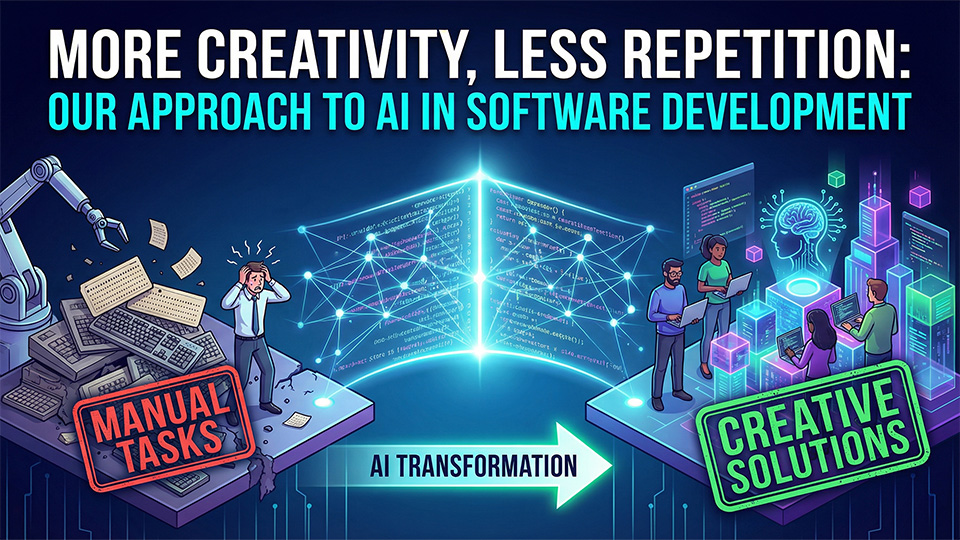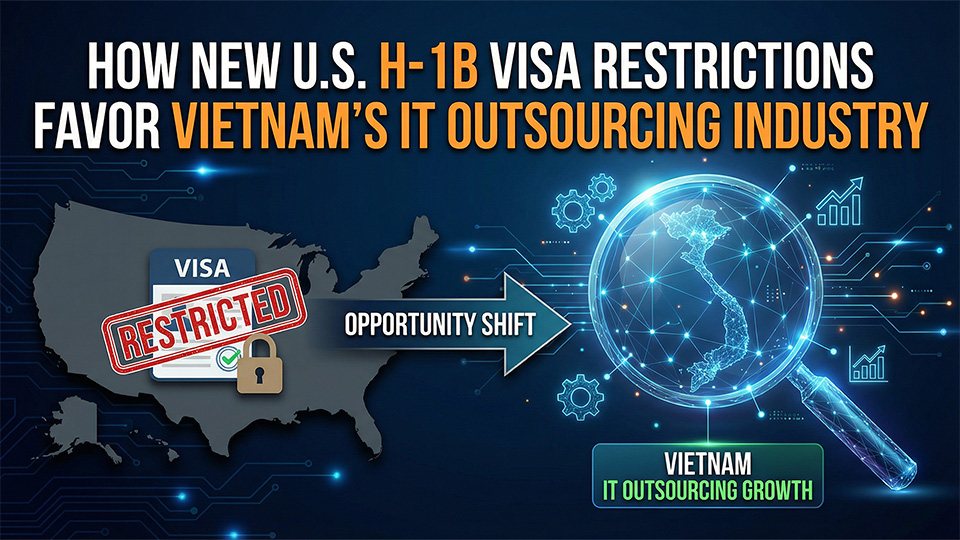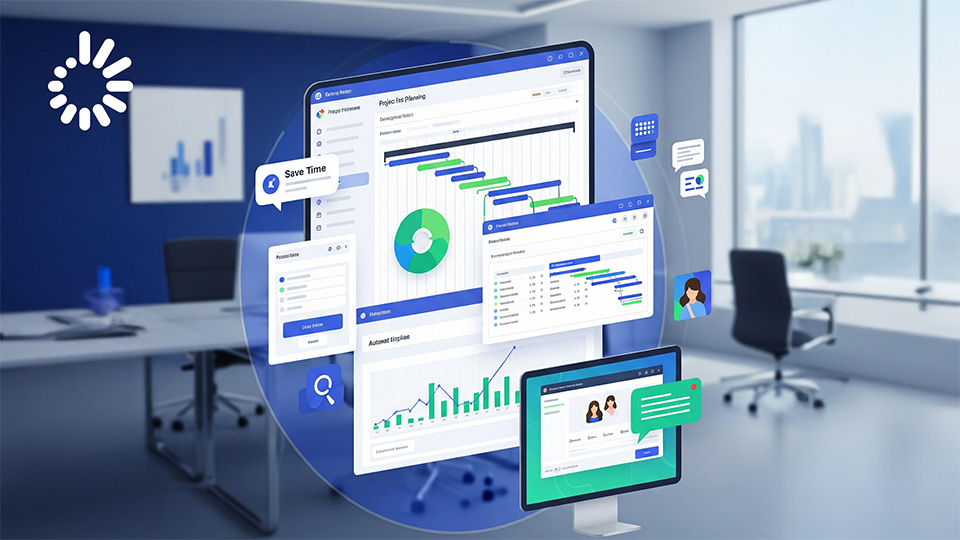September 16, 2022
The Best Cloud Providers to Choose From
Introduction
With the pandemic impacting the way businesses operate, 67% of IT infrastructures are cloud-based. This number is expected to grow in multiples in the upcoming years as we surround our daily and work lives with technology. If your business is still reluctant about getting on the cloud, we have everything listed out so that you can make your own judgment and decide whether cloud computing is for you. But be warned that you might be tempted to switch the whole infrastructure to the cloud immediately!
What is a cloud service?
Cloud computing services have risen in popularity because they enable users to easily access software, applications, platforms, and other resources via the Internet. Think of Google Drive: it's not surprising that it is the most used cloud storage service globally. While perfect for personal use, there is much more in cloud services for businesses. It's not only the files but everything IT. There are typically four types of cloud services.
Infrastructure as a Service (IaaS): Everything computer-related infrastructure from servers, storage, and networking can be delivered over the Internet.
Platform as a Service (PaaS): Developers can build, test, and deploy applications on the cloud without worrying about the underlying infrastructure.
Software as a Service (SaaS): This cloud service model is where software products are hosted by the service provider, usually in the form of a web application.
Function as a Service (FaaS): Developers utilize this serverless backend service to deploy individual functions or write pieces of code on the fly that can be executed in response to certain events.

Why use a cloud service?
If everyone is using the cloud service, there must be some kind of magic that hooks them in. Especially after the pandemic hit, work is much more flexible. A preference survey demonstrates that 26% of employees prefer to work entirely remotely, and 49% prefer hybrid. What's the use of maintaining the costly onsite infrastructure, then? Let's look at the top benefits of cloud computing.
Enhance the ability to scale: You don't need to invest in any more infrastructure and software or allocate IT staff to run those services; that can already be done with cloud services. The best part? You can scale elastically, delivering the right amount of IT resources - from computing power to storage and bandwidth - right when they're needed from the right geographic location.
Lower costs: Many cloud providers offer a monthly or annual subscription which means you don't need to pay for on-premise software licenses. These cloud providers also handle all the maintenance and upgrade, so you don't have to worry about the underlying infrastructure and jump straight to using software, storage, or other services. What's more, businesses can procure services flexibly on an on-demand, as-needed basis, so when there's no longer a need for a particular application or platform, the service can be canceled with a click.
Performance & security: Many cloud providers have followed rigorous policy and guidelines as they are handling the most valuable asset any business owns - data. The biggest cloud computing providers run on a worldwide network of secure data centers, which are regularly updated to run more efficiently each time.
Productivity & reliability: With traditional IT infrastructure, if one server shuts down, your whole system will follow. This can negatively impact the revenue stream and lower productivity and motivation with unnecessary interruptions. With cloud providers who handle the maintenance for you, businesses can rest assured that they are in reliable hands.
Criteria for choosing a cloud provider
Choosing a cloud provider is the next most challenging step. While the popularity of the cloud provider is essential, other critical factors decide what's best for your business. Find out what these criteria are below!
Security & Pricing: Dealing with a business's most valuable asset, cloud providers need to have top-tier security to protect your data against cyberattacks that may destroy or erase it. Cloud services are usually billed pay-as-you-go, meaning you only have to pay for the resources you use. However, there are many other pricing models that may be more fitting for you. Assess the cloud providers' security features and compare the prices before making a decision.
Ease of use: Think about the user experience and employee training. If your employees waste time trying to figure out how to use the cloud computing platform and applications. Be sure to choose one that can offer an intuitive and user-friendly interface.
Features & Functionality: When picking a cloud provider, it is essential to pick out the one that has everything you need. Some providers may lean towards being stronger in one service than the other, which is why you should make a list of all the features & functions you need and compare it to what cloud providers offer.
Customer support: No matter how good the cloud provider is, you will highly likely find an error or need help to navigate the problem. While customer service comes with every service, the quality can vary greatly. You can either find solving the problem super easy or extremely frustrating. An excellent way to check for quality is by looking at the reviews.
Vendor lock-in: Be wary of cloud computing providers that try to trap you by making your exit costly and difficult, especially when you become dependent on the vendor. Create an exit plan to ensure you don't fall into the trap.
The best cloud providers
We have gathered a list of the best cloud providers and added a few pros and cons based on user reviews so you can pick out which one is the most suitable for you!
AWS Cloud: While the ranking for the best cloud provider can differ from one place to the other, the number one spot will always be reserved for AWS Cloud. This cloud provider has the largest piece of the market share pie. AWS can be used independently or together for a broader experience. A lot of the big names have used AWS for cloud mitigation, cloud operations, content delivery, and more.
Google Cloud: Google Cloud is among the most convenient cloud computing providers, thanks to smart analytics and database solutions. It is user-friendly with a straightforward interface. It is also a security-centric platform and uses artificial intelligence to simplify analytics for cloud users. However, the downside is that it can be costly, and a lot of documentation & tutorials need improvement.
Microsoft Azure: This cloud computing platform offers many comprehensive services that can be used for different needs. Its hybrid cloud services allow developers to create cloud applications for web and mobile. It is easy to use and makes cloud applications functional. However, there are limitations in application platforms and more room for Operating System support.
IBM Cloud: IBM Cloud is among the most used cloud providers and is highly customizable depending on your business needs. Its services include hybrid cloud management, cloud mitigation, and data mitigation to enhance your data integrity. There is almost no con to IBM Cloud, except that it could be difficult for beginners to learn.
Conclusion
So here is your list of the best cloud providers! When choosing your cloud provider, consider the criteria and build your cloud strategy carefully. Dirox can help you adopt cloud services based on what works best for your business by leveraging a full range of cloud service providers. Don't hesitate to contact us for IT solutions delivered on time, on budget, and on quality.






























.svg)













